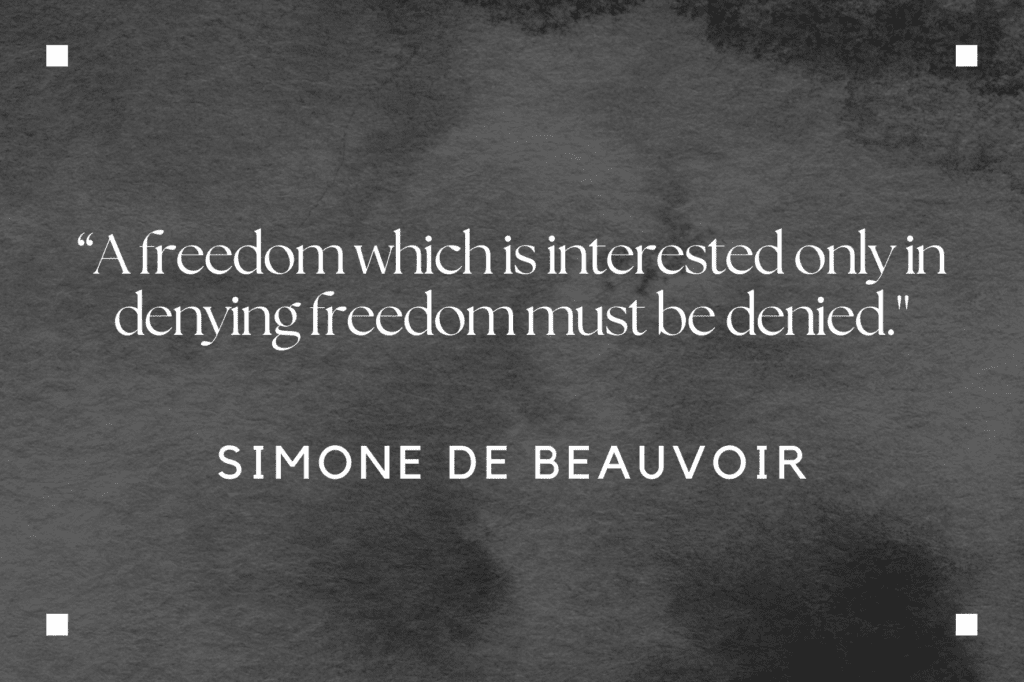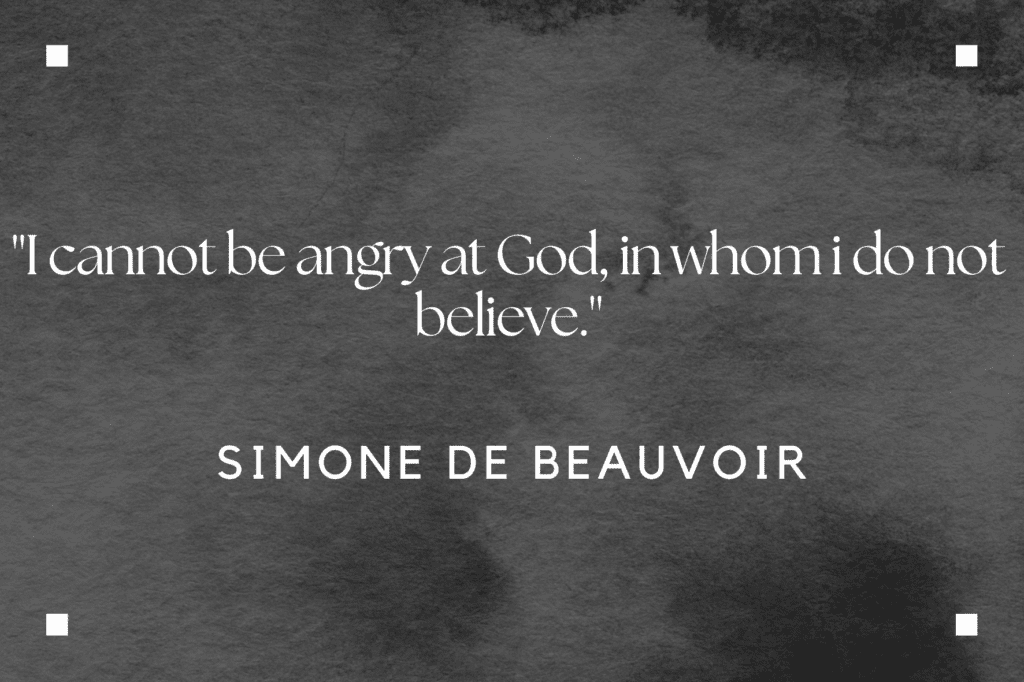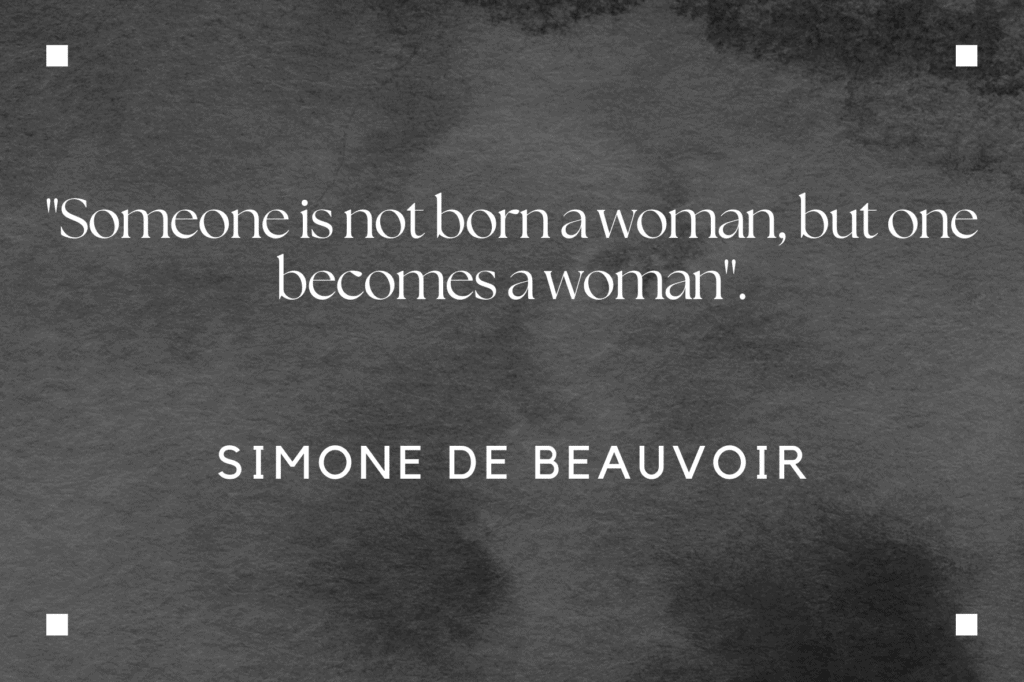Simone de Beauvoir a pioneer of feminism?
Simone de Beauvoir, born January 09, 1908 in Paris, died April 14, 1986, is considered the most important female existentialist as well as a pioneer of feminism. As a writer, she wrote numerous novels, essays, short stories and memoirs. She was also the longtime partner of Jean-Paul Sartre.
Simone de Beauvoir came from a very good household and was raised Catholic-Christian. Her great-grandparents owned a country estate, through which they had their aristocratic name affix "de Beauvoir". Her grandfather also held a high post in the city administration of Paris for some time.
In 1928, she was awarded the Licencewhich is comparable to today's bachelor's degree, with the best results.
De Beauvoir also often visited the Café de Flore, where she often worked on her writing. It was in this very café that she also met Albert Camus, Pablo Picasso, Dora Maar, Jacques Lacan and many other famous people.
If you have ever wondered whether Albert Camus was an existentialist or not, you can here read the answer.
Her most famous novels are "She came and stayed", "The Blood of Others" as well as "The Other Sex".
Through her book "The Blood of Others" Simone de Beauvoir achieved her first great success as a writer and thus gained great recognition. However, this recognition was far surpassed when she published "The Other Sex", which is considered a milestone of feminist literature and gave her worldwide recognition as an intellectual.
Simone de Beauvoir and Existentialism
Simone de Beauvoir coined, or rather, was part of the founders of existentialism.
De Beauvoir, like most existentialists, was of the opinion that man as such, gives a meaning to existence itself. Without the human being there would be no sense in the universe, since we give this to the existence only by our subjective opinion. In addition, each person is free to live as he or she sees fit.
Since we are all already here, the resulting question is what to do with it.

Simone shed her Christian faith during her life, then later was an atheist, like her longtime partner Jean-Paul Sartre. For this reason, she, like Sartre, had spread an atheistic existentialism. This does not differ completely, but in some points, from a theistic existentialism, as it was spread by Søren Kierkegaard.
If you want to know how existentialism came into being, we have prepared for you here summarized the story.
One of the reasons she became an atheist was that she could no longer relate to mythology. At the age of 18 she began to read Immanuel Kant, who taught that we humans do not deal with the fundamental questions of the His but to ask questions that arise from our existence on earth.
De Beauvoir was also of the opinion that it was rather up to the others to prove the existence of God than up to her to prove his inexistence.
By the way we also have a extensive listwhere you can look up which philosophers believed in God.

According to de Beauvoir, the force that guides every human being was concern for our fellow human beings. We try to do the best for our relatives and acquaintances. We want to please others and please them. However, we must not forget that our own desire for happiness is also a great motivator for our actions.
This pursuit of our own happiness is determined in large part by how others perceive us. No one can realize himself, without other people.
Simone de Beauvoir and feminism
Simone de Beauvoir is considered the mastermind of feminism. Her desire for women's independence should not be surprising, since existentialism is about each person giving meaning to his or her own life. So why should societal standards or the church have any say in whether women should raise children, do the housework, or serve their husbands?
It is not only men who should live their lives according to their own ideas, but every man.

With her book "The Other Sex," de Beauvoir gained worldwide recognition and esteem. In the beginning, the book was still put on the index by the Catholic Church, i.e. it was on the list of books that could lead to excommunication by the church. Why reading de Beauvoir's book was considered a grave sin is anyone's guess. Nowadays, however, it is no longer on the index.
De Beauvoir is considered a pioneer of feminism not only because she philosophized about women's rights, but also because she devoted most of her life to them. She did all this under circumstances that were hostile to her, but she did not let them get her down.
All in all, it can be said that Simone de Beauvoir was a fascinating woman and philosopher.







